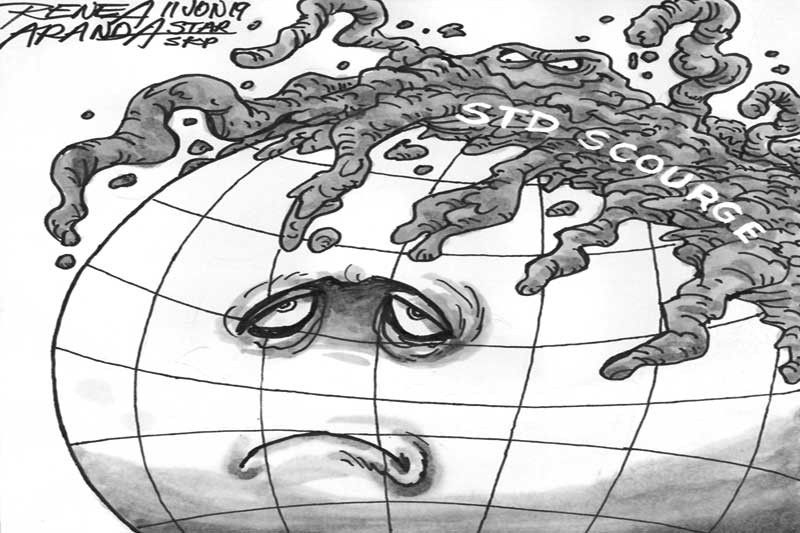EDITORIAL - Risky sex

It seems incredible, but the World Health Organization reports that on average, one million people are diagnosed with sexually transmitted infections every day around the world. The STIs include chlamydia, gonorrhea, trichomoniasis and syphilis. The diseases are transmitted mainly through unprotected sex, according to the WHO.
Left untreated, STIs can cause infertility, stillbirth, ectopic pregnancy and increased risk of contracting HIV. The WHO also stressed that STIs are transmitted from mother to child during pregnancy.
This should be a cause for concern in the Philippines, which is already grappling with the fastest rate of HIV infection recorded in recent years in the Asia-Pacific. The AIDS-causing human immunodeficiency virus is also spreading at the fastest rate among the 15-to-24 age groups. As of last April, the Department of Health was recording 38 new cases of HIV infections daily nationwide.
The government has recognized the gravity of the problem and has passed Republic Act 11166, the Philippine HIV and AIDS Policy Act, which promotes the human rights of persons living with HIV/AIDS. RA 11166, which amended the AIDS Prevention and Control Act of 1998, seeks to assist persons with HIV/AIDS so they can enjoy a life that is as healthy as possible, with free treatment for the poor and protection from various forms of discrimination.
Even the toughest laws, however, will not eradicate overnight misconceptions about HIV/AIDS and the stigma that people attach to the affliction. The laws and numerous cautionary tales are also not enough to stop risky sexual behavior that promotes HIV infection.
Institutional reforms and attitude changes will take time. A more aggressive information campaign and the improved public access to HIV/AIDS-related health care services under the new law can slow down the rate of infection. This is best achieved by individuals themselves, by engaging in safe sex and, if potential symptoms are manifested, by getting an early diagnosis. The sooner HIV is detected, the more effective the treatment. And the better the chance of preventing its spread and its progress into full-blown AIDS. The same goes for other sexually transmitted diseases.
- Latest
- Trending




























